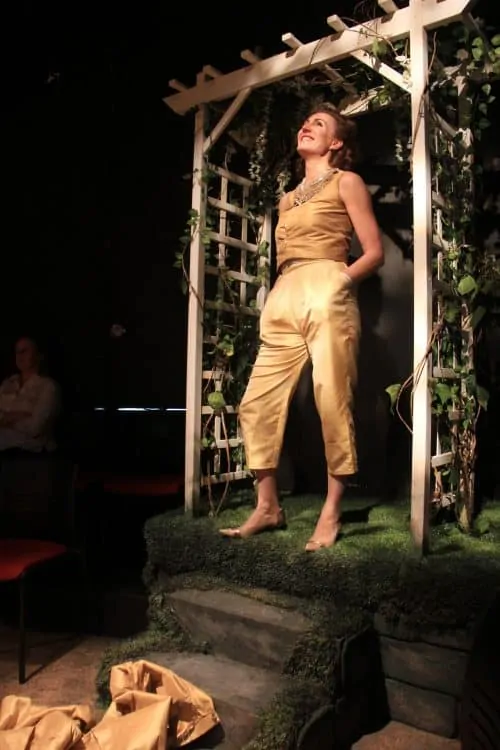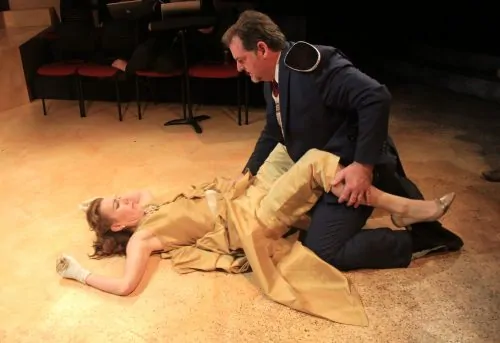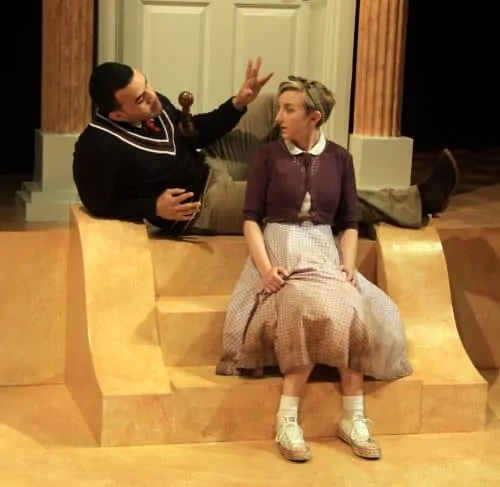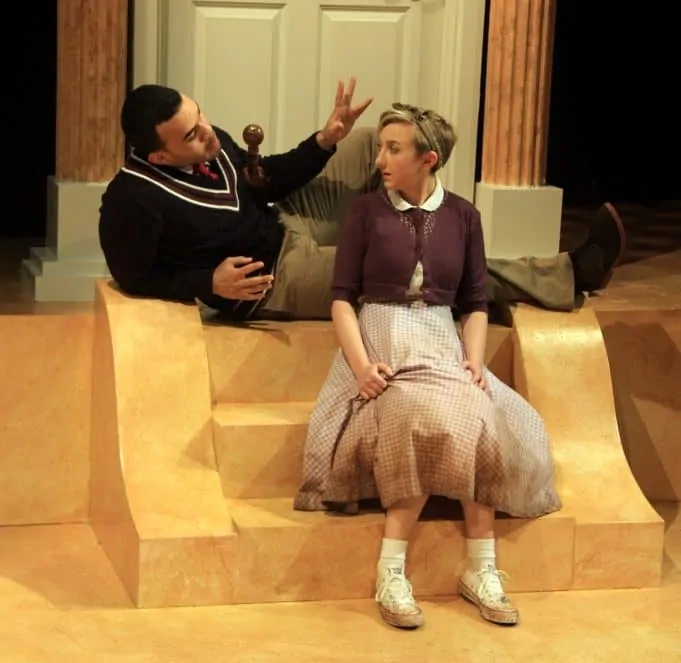
Incest, curses, and suicide—Racine’s Phèdre is the 17th-century French tragedy par excellence. The plot: Phèdre’s husband Theseus is believed to be dead. After struggling against it (and urged on by her servant Oenone), she confesses her love for her son-in-low Hippolytus. He rejects her advances in horror. (He loves the imprisoned princess Aricia.) When Theseus returns alive, Phèdre and Oenone forestall the revelation of Phèdre’s incestuous passion by accusing Hippolytus of attempting to rape Phèdre. Tragedy ensues, with most of the principal characters winding up dead.
This should all be thrilling and deeply tragic. But despite a talented cast, Cutting Ball Theater’s current production (directed by Ariel Craft) is oddly cold.
Logical holes undercut the coherence of the plot. The existence of a magical lie-detecting temple, which is not used to resolve the central he-said-she-said dilemma, we can blame on Racine. But this production has other issues. Why is Theseus so quick to believe the accusation against his son? Hippolytus’s equivocations during their reunion would explain it, but here they are overshadowed by Theseus’s bullying. Oenone’s motivations are similarly unfathomable. She spends most of the play stony-faced and exasperated with Phèdre’s antics. In the absence of affection, why would she commit a monstrous crime on Phèdre’s behalf?

Rob Melrose’s translation of Racine’s script muddles matters further. It affects a high poetic style and was delivered by the actors accordingly. I like the concept of modern verse translations, but here it led to awkward lines (e.g., “…finally justify Theseus in the end”) and a sing-songy rhythm that was easy to hear without processing. The best moments came when the actors stopped treating this as verse and spoke naturalistically, but those moments were too rare.
A fiercely committed cast rescued the show from boredom. Cecily Schmidt’s excellent Aricia was more spunky than love-struck, and she had adorable chemistry with both her servant Ismene (Maria Leigh) and her lover Hippolytus (Ed Berkeley). Courtney Walsh gave a command performance as Phèdre, creating a sustained and varied portrait of madness. This was no noble heroine with a bad advisor and a fatal flaw. From the moment we first met her, she was unmoored, flinching, humming, covering her ears to avoid bad news, and even masturbating onstage.

These antics—combined with the sheer force of Phèdre’s voice and presence—made it difficult to believe she had lost herself for Hippolytus in particular. Rather, Phèdre’s sexuality (and more generally, female sexuality) was the destructive force. The 1950s setting further emphasized this message (and gave costume designer Brooke Jennings an excuse for super-cute dresses). Sexuality was even symbolically instantiated in one of Phèdre’s hands, which she spoke to as Venus and which kept escaping her control. It would signal or work towards the object of her desire, while her other hand fought to restrain it.
The symbolism was clear, the point less so. The goal was a criticism of sexual repression of women, but the script doesn’t bear that out. It’s not Phèdre’s sexuality being repressed; it’s her particular adulterous incest. Her manic episodes and the generalization of her lust made her less sympathetic, not more. Phèdre in this frame kept my interest but left me unmoved.
2.5/5



